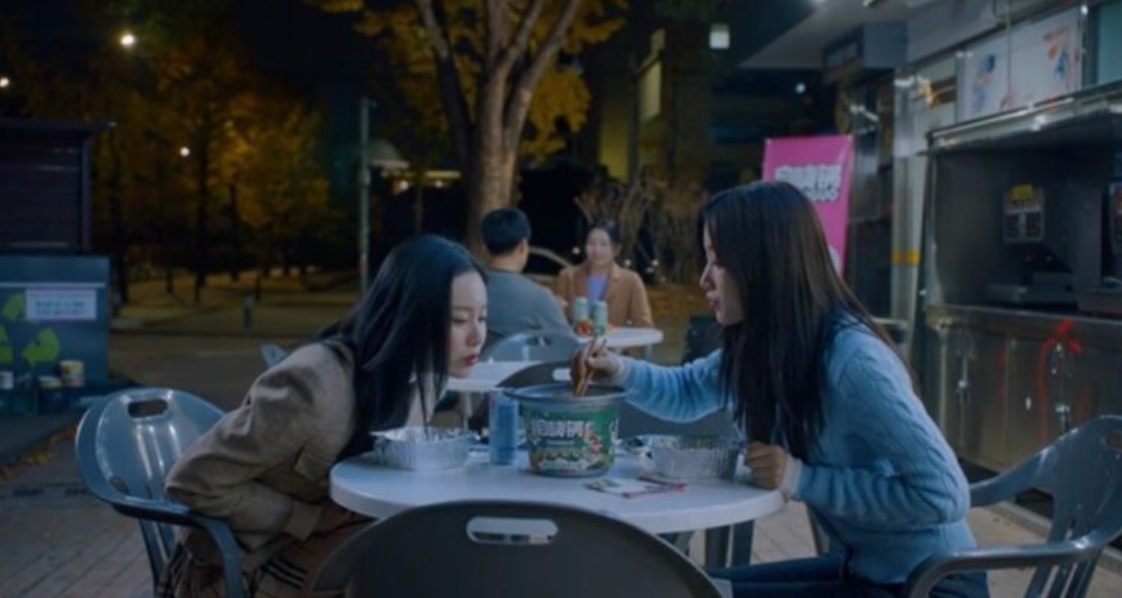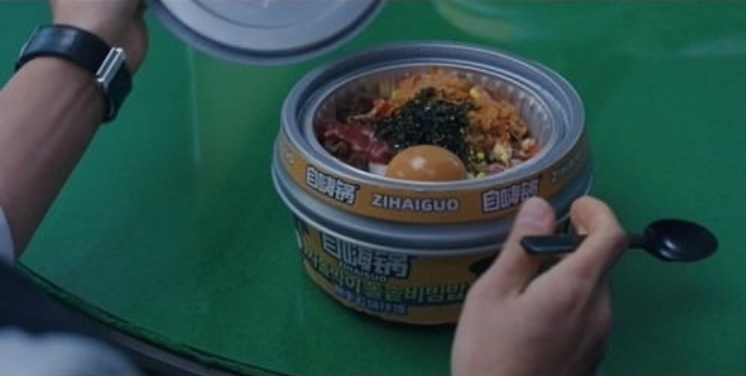[Newsmaker] Korean entertainment companies wary of Chinese money
After recent drama fiascos, Chinese investment seen as poisoned chalice
By Lim Jang-wonPublished : April 13, 2021 - 15:35

The entertainment industry is on high alert for Chinese money in South Korean dramas after the SBS historical drama “Joseon Exorcist” was canceled after just two episodes last month.
One of the criticisms leveled at “Joseon Exorcist” was that Chinese foods -- such as moon cakes and Chinese-style dumplings -- as well as Chinese-style sets and props were used in the drama, which was set in Korea’s Joseon Kingdom. Although the drama was made with 100 percent Korean investment, the scenes touched a nerve for many Koreans, who are growing wary of cultural appropriation by China and Chinese product placements in Korean dramas.
However, the current drama production and distribution system makes Chinese investment an option that production companies cannot ignore.
“The production cost per episode has more than doubled in the last 10 years. Now, dramas cost around 600 million to 700 million won ($532,000-$621,000) per episode,” said one production company marketing official, who wished to remain anonymous. “It is difficult to cover the costs with just local advertisements.”
New legislation limiting overtime has led to longer production times, and the increased costs of implementing quarantine measures and hiring actors, among other things, all mean a rise in production costs.
With Netflix original series like “Sweet Home” costing nearly 3 billion won per episode to produce and COVID-19 causing local companies to reduce investment in dramas, Chinese money is a poisoned chalice for production companies experiencing financial difficulties.
One of the major reasons for Chinese investment in Korean dramas is the ambition of Chinese streaming services to expand overseas into countries where K-dramas are popular.
The Chinese government’s ban on Korean content makes streaming of K-dramas within China difficult for Chinese platforms such as iQiyi and Tencent Video. But as the platforms expand their services, especially in Southeast Asian countries, they are willing to invest in Korean dramas.
Netflix has proven that Korean dramas are the key to the Asian market, with dramas such as “Kingdom,” “Crash Landing on You” and “Itaewon Class” proving successful.
Hoping to replicate that success, iQiyi bought the foreign streaming rights to “Cliffhanger,” one of the most anticipated dramas of the second half of this year, featuring superstar Jun Ji-hyun and popular actor Ju Ji-hoon. The company has also bought the rights to numerous Korean dramas, including JTBC’s “Hush,” SBS’ “Backstreet Rookie” and tvN’s “Mouse,” among others, since last year. The tvN webtoon-based drama “My Roommate is a Gumiho,” scheduled to air next month, is the first iQiyi original Korean drama production.
Meanwhile, Tencent last year invested 100 billion won in JTBC Studio, which made “The World of the Married” and “Itaewon Class.”
The growing popularity of K-dramas worldwide has also caught the attention of Chinese companies hoping to promote their products globally through product placements.

Earlier this year, tvN’s webtoon-based drama “True Beauty” came under fire for scenes where Korean high school students were shown eating Chinese instant hotpot from the Chinese company Zihaiguo outside a convenience store. Many criticized the scene, saying the blatant product placement interfered with the viewing experience. The product is not sold in convenience stores in Korea.

The product placement issue became more controversial when bibimbap from the same Chinese company was shown in the tvN drama “Vincenzo.”
“Although the decision was probably made to manage production costs, it is very unfortunate, especially in these times,” said Seo Kyoung-duk, a professor of general education at Sungshin Women’s University, on social media after the scene aired. “Of course, rather than targeting Korea with (product placements), I think they wanted to use the global influence of K-drama to advertise the product. What worries me the most is that bibimbap in a container with Chinese written on it can mislead foreign viewers into thinking that it’s Chinese food.”
People in the entertainment industry say that while the influx of Chinese money has not been much of a problem so far, the Korean entertainment industry is approaching a point where businesses need to be more discerning.
Hollywood has received similar investment from China, leading many to criticize Hollywood for showing China in a positive light and condoning restrictions on freedom of speech.
Also, as the Chinese box office has supplanted the US in the No. 1 spot, people in the Korean entertainment industry fear that the rapid rise of Chinese dramas could be a threat to K-dramas.
With Chinese money in the Korean entertainment industry stirring up controversy, some programs have taken to promoting themselves as being free of Chinese investment. Well-known producer Han Dong-chul, responsible for Mnet audition programs such as “Show Me the Money” and “Produce 101,” said he was offered 1 billion won from a Chinese company when he became a free agent, but decided to join MBC because Chinese companies interfered with programming.
The change in the way netizens criticize dramas is another reason that production companies are wary of Chinese money.
“Mr. Queen,” a tvN show based on a Chinese novel, saw over 4,000 complaints lodged with the Korea Communications Standards Commission over historical inaccuracies. After the KCSC issued a warning, netizens took a different route with “Joseon Exorcist.”
People posted the names of the companies that invested in the production of “Joseon Exorcist” and urged a boycott of their products, labeling them as ignorant of history. The critics also posted the names of the actors and staff involved in the drama and called boycotts on them as well. Their grievance was also taken to the Blue House’s petition board, where a petition demanding the termination of the drama gathered 120,000 signatures on its first day. This led to all the investors pulling out and to the revocation of the permit by the city where the shooting was taking place.
Meanwhile, the growing opposition to Chinese influence in the Korean entertainment industry is changing the production schedules of dramas set for later this year.
Another tvN drama -- “The Golden Hairpin,” based on a bestselling Chinese web novel -- is scheduled to air later this year. Although only the basic concept will be used and the plot will be completely changed, people are already on high alert for any Chinese influence on a Korean drama.
By Lim Jang-won (ljw@heraldcorp.com)
-
Articles by Lim Jang-won



















![[Today’s K-pop] Treasure to publish magazine for debut anniversary](http://res.heraldm.com/phpwas/restmb_idxmake.php?idx=642&simg=/content/image/2024/07/26/20240726050551_0.jpg&u=)